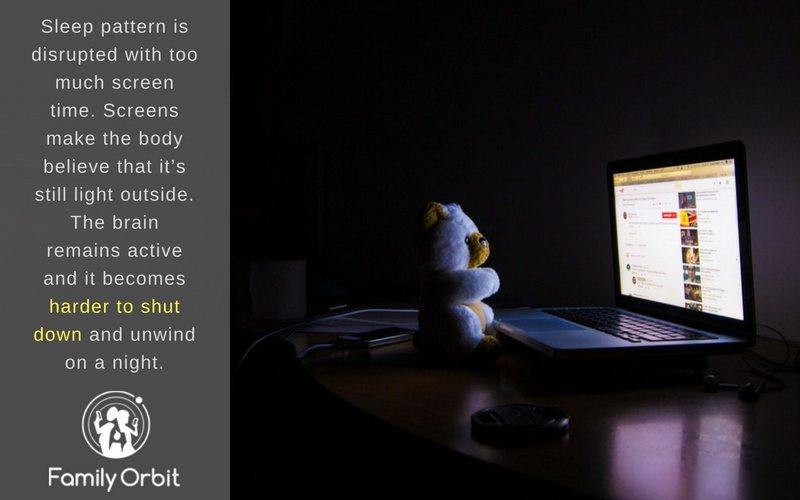We live in a world of technology and screens. Everyone is inundated with devices, whether it’s the TV, the laptop, phones, tablets, and much more. There doesn’t seem to be a way to avoid them. Schools expect children to do their homework on laptops. The Kindle offers ways to read books without the physical book. Then there’s the constant barrage of social media notifications, emails, and private messages. But how much of this is healthy for your teenager?
It’s important to find ways to limit your teen’s screen time. While it’s impossible to cut it all out, you want to limit it to a healthy level.
So, what is healthy for a teenager? Just how much screen time do they need?
What Should Be Your Teen’s Screen Time Limit?
There are various reports, depending on whether you’re looking at overall screen time or just recreational screen time. Of course, it’s impossible to cut it all out, especially as schools move into the need for homework to be done online. Since you can’t limit the school’s screen time, you’ll need to look at the recreational.
Participation.com states that two hours of recreational screen time is the maximum amount for a teenager. This includes all forms of screens, whether TV, laptops, or phones. It’s important to add more outdoor and non-screen activities into their lives.
Physical Health Problems from Too Much Screen Time
Because you can’t limit the need at school (or even in the office if your teen is now working), you need to look at reducing the screen time at home. This is important to protect the physical health.
Think about the amount of time your teens have at home. When they’re not at school, studying, or sleeping, they’re likely watching TV or playing games on their devices. They may be chatting on social media or reading books on their Kindle. Some will watch videos on YouTube or participating in online forums.
While there is sometimes a social aspect, too much teen’s screen time affects the physical health. They spend more time sitting, so they’re not as active. Teens need to be active. This burns off energy, helps to maintain a healthy weight, and supports the health of the muscles and the immune system, among many other health benefits.
Mental Health Problems from Screen Time
It’s not just the physical health problems either. Too much screen time damages the mental health. One of those ways is due to the disruption of the sleep pattern. Screens make the body believe that it’s still light outside. The brain remains active and it becomes harder to shut down and unwind on a night. While phones and tablets do have a night mode setting, it’s still a disruptive light.
Let’s not forget that a lot of teens will put their phones by their beds. Incoming text messages and notifications wake teens up. There’s this need to check right away.
Without plenty of sleep, the mental health (as well as the physical health) takes a slide. Teens become grumpier and harder to wake up on a morning. Their school work is affected and they can also find friendships are negatively affected, too.
On top of that, there’s the decline in the mental health from the likes of social media. Cyber bullying is on the rise because it can be kept quiet. By reducing your teen’s screen time, you can help to reduce the amount they’re exposed to bullies and mean statements. Then there’s the need to keep up with current styles, the view that everyone’s life is perfect through social media, and the need to be up to date with the latest fads on YouTube.
You teen can become depressed and anxious because they feel like they don’t fit in. They worry about what will be said the next day at school, especially if they’ve not been able to respond quickly enough to a comment or like a picture quickly enough.
Some Teens Need Less Than Others
With all this being said, it’s important to remember that all teens are different. The two hours of recreational guide is really just a guide and recommendation. It’s an average. And these negative side effects will depend on the teen’s mental health and current physical condition.
As a parent, you’ll want to monitor your teen’s screen time while also monitoring their physical and mental health. If they’re still active and are genuinely happy and their school work is good, there may not be a need for concern just yet, according to The Guardian. Just monitor to make sure it all stays that way.

